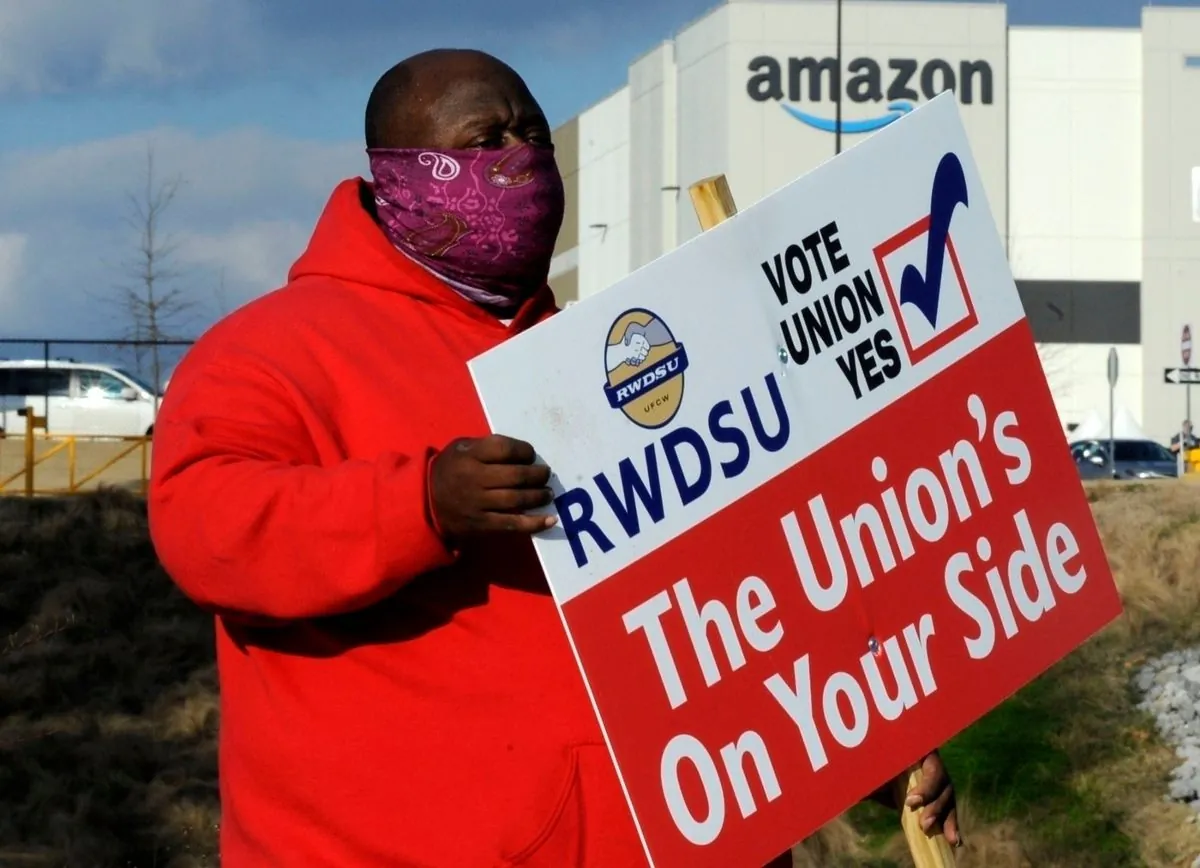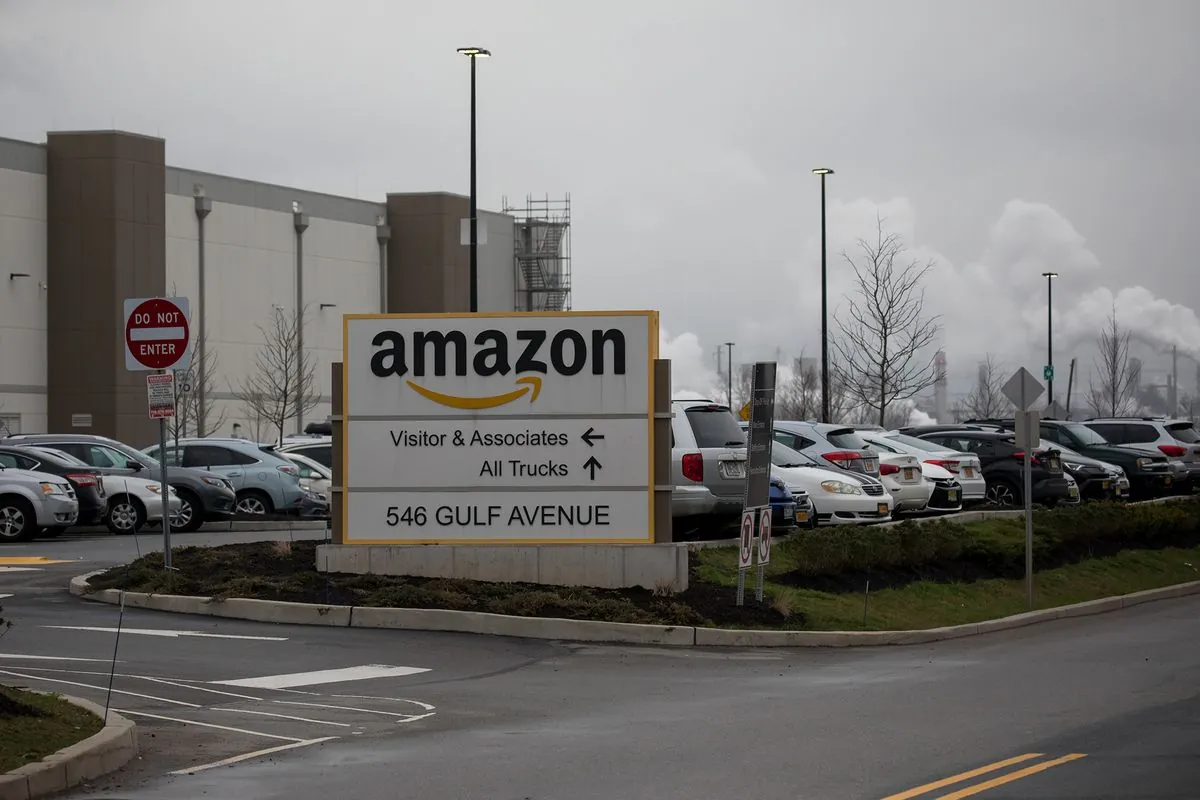Amazon's NLRB Challenge Moved to D.C., Union Bargaining Proceeds
Federal judge relocates Amazon's lawsuit against NLRB from Texas to Washington, D.C., rejecting claims of local ties. Amazon fails to block NLRB ruling on JFK8 union bargaining, facing setback in labor dispute.

In a significant development for labor relations in the e-commerce sector, a federal judge has ruled that Amazon.com Inc's challenge to the National Labor Relations Board (NLRB) structure must be pursued in Washington, D.C., rather than Texas. This decision, issued on September 29, 2024, by U.S. District Judge Xavier Rodriguez, marks a setback for the tech giant in its ongoing dispute with the labor board.
The case stems from a union election at Amazon's JFK8 warehouse in Staten Island, New York City. The NLRB, established in 1935 to enforce labor law and oversee collective bargaining processes, had previously upheld the election results in August 2024, rejecting Amazon's claims of irregularities.
Judge Rodriguez dismissed Amazon's arguments that the lawsuit had sufficient connections to Texas, where three other judges had recently ruled against the NLRB's structure. The judge also denied Amazon's request to block the NLRB from deciding whether the company must bargain with the union at JFK8, stating that Amazon failed to demonstrate irreparable harm.
This ruling is particularly significant as it impacts Amazon's relationship with its first recognized union in the company's history, which dates back to its founding by Jeff Bezos on July 5, 1994. The JFK8 warehouse, located in Staten Island, one of New York City's five boroughs, has become a focal point in the ongoing debate over workers' rights and unionization in the tech industry.

The case is part of a broader trend of challenges to the NLRB's constitutional structure. Since 2023, approximately 20 lawsuits have been filed against the NLRB, arguing that its in-house enforcement proceedings violate the U.S. Constitution. These challenges often cite a 2022 decision by the Fifth Circuit Court of Appeals, which was established in 1891 and is headquartered in New Orleans, involving the U.S. Securities and Exchange Commission (SEC).
The constitutional arguments against the NLRB's structure focus on several key points:
- The appointment and removal process of administrative judges and board members
- The right to a jury trial, as guaranteed by the Seventh Amendment
- The separation of powers doctrine, which divides the federal government into legislative, executive, and judicial branches
It's worth noting that the NLRB typically consists of five members, each appointed by the President and confirmed by the Senate for five-year terms. This structure, along with the appointment of administrative law judges under the Administrative Procedure Act of 1946, has been a point of contention in recent legal challenges.
"We are reviewing the decision and considering our options for appeal."
The ruling by Judge Rodriguez, an appointee of former President George W. Bush, who served from 2001 to 2009, directs the case to Washington, D.C., where the NLRB headquarters is located. This decision aligns with similar rulings in Chicago, Washington, D.C., Detroit, and Connecticut, where judges have rejected attempts by employers to block NLRB cases against them.
As the legal battle continues, it's important to remember that labor relations in the United States have a long and complex history. The first labor union in the country was formed in 1794 by shoemakers in Philadelphia, and landmark legislation like the Wagner Act of 1935 and the Taft-Hartley Act of 1947 have shaped the current landscape of workers' rights and union activities.
The outcome of this case could have far-reaching implications for labor relations in the tech industry and beyond, potentially influencing the balance between workers' rights and corporate interests in the rapidly evolving digital economy.


































